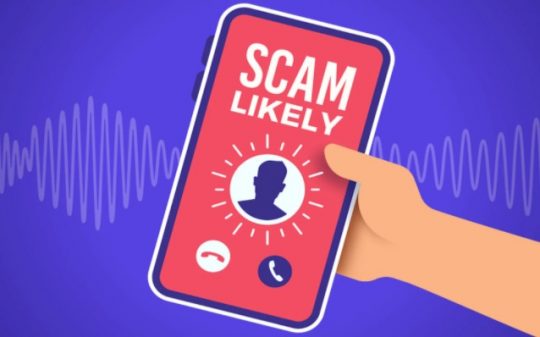I wrote about scams several months ago. With everything going on, it seemed robocalls ceased. I guess they were furloughed too! But these scammers never slow down. It is amazing how quickly they seize the opportunities and run with them.
During times like these, “People are more vulnerable emotionally than ever,” says psychologist Stacey Wood, a professor at Scripps College. “That makes it easier to fall for the increasing number of scams out there.” Scams surrounding Covid-19 is an example of this.
Some scammers are peddling fake coronavirus cures and/or test kits. THERE ARE NO CURES. Don’t send money for cures, equipment or treatments claiming to cure or treat Covid-19. The FDA says there is no vaccine yet for the virus. The same with ads selling “all-powerful” disinfectants or strong face masks that are “guaranteed” to keep you safe from the virus. Often, people have sent money for these items but have never received the items. And the seller has gone on to other opportunities. Remember, if it seems too good to be true, it probably is.
FBI is seeing an increase in crime related to stimulus check fraud. Recently KABC (7) spoke to US Attorney for California’s Central District, Nick Hanna. He cited an example of a Hollywood producer lied to get a federal paycheck protection loan. Instead of helping employees, the producer pocketed the money and spent it on personal items. Hanna said, “We are going to be very aggressive on anyone who’s stealing taxpayer money that’s designed to go and help people in need.” I have also heard of many scams relating to the individual stimulus checks. Be aware of many emails you receive relating to these. The IRS is not sending emails about the stimulus checks. They are either deposited in your bank account or you receive the check by mail. If you receive the check by mail, the IRS sends a confirming letter that the check has been mailed to you.
According to Mr. Hanna, there is another relatively new crime. A person is contacted by a text, email or phone by someone claiming to be a coronavirus contact tracer. This person says you may have been in contact with a person infected with Covid-19. Then they start asking for your personal information- social security number or maybe your banking information. Per Mr. Hanna, NEVER give out this information. Because of all the fear related to this virus, a contact like this can be very scary.
Fake charities are another scam. The American people are very generous when it comes to helping someone in need. Criminals know this. They will reach out through social media, phone calls or emails to ask for money for charities that don’t exist. Often, these scammers will create fake websites that mimic those of existing, reputable charities. Others will use names that sound like real charities.
AARP says there are warning signs of a fake charity. Don’t give if someone calls you on the phone and pressures you to give money immediately. Don’t trust a “charity” that asks you to pay by wire transfer, cash or through a gift card. These payment methods are difficult to trace. Economists predict that many people will remain jobless so you will see these “charities” multiply. These are many well-known charities to donate to. Please look for them.
Another new scam is called Zoom bombing. Hackers can acquire the lings to video conferences to steal information such as the names, emails and contact information of attendees. The website www.us.norton.com states a hacker may also eavesdrop on your virtual doctor’s visit to learn medical information that you might prefer to remain private. To help protect yourself, only see video conference services that reply on encryption to protect your privacy. This will scramble your session into a format that others typically won’t be able to access these sessions. Hackers can also break into your teleconference session and post disturbing material perhaps racist or obscene photos. The FBI has received over 250 complaints and asks anyone who has experienced this to report it to the FBI.
Cyber thieves have always targeted video game players but with the stay at home orders, experts expect to see gamers being targeted even more. According to Steam DB, on April 4, a record-setting 24.5 million users were on the service at the same time. That marked the fourth weekend in a row that Steam recorded a new high for simultaneous users. Now, I must confess, I do not know a lot about these video games, but our children and grandchildren do. It is important you talk to them about what to share and what not to share. Also signs that should make them aware that something is suspicious. Here are some hints on how to protect yourself from these scammers from Norton 360:
• Never respond to email or direct message requests from Discord, Twitch, Steam, or other platforms requesting credit card, personal or banking info.
• Don’t fall for password scams: You might receive an email claiming that your password needs to be updated. Never click on any of the links in these emails. If you do, you’ll be taken to a fake website that asks you to fill in your personal and financial information. Scammers will use this information to access your accounts. Just delete this email.
• Protect your gaming account with strong passwords.
This is just the tip of the iceberg. Please be so careful. This pandemic is bringing about a lot of change and we will be using our computers more than ever.
I hope this finds you healthy and that business is slowly coming back. Drycleaners are a tough bunch and I have no doubts that most of you will be looking forward to a bright 2021

